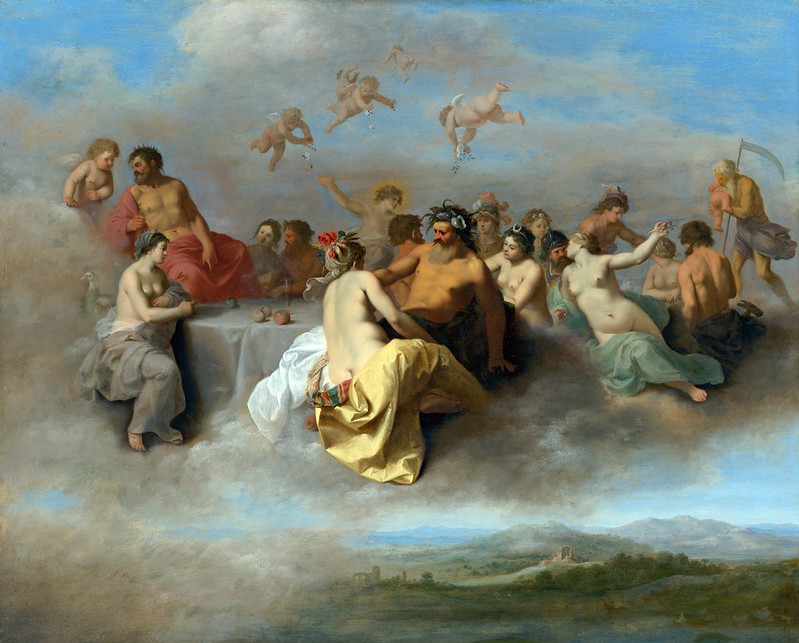Francisco López Capillas (1614-1674)
- Missa 'Aufer a nobis'
Performers: Capella Prolationum; Ensemble La Danserye
Further info: Francisco López Capillas (c.1605-1674) - Missa Re Sol
---
Mexican composer and organist. The son of Bartolomé López (who was
possibly a royal notary) and María de la Trinidad, López was probably
admitted to the choir of Mexico City Cathedral around 1625, he would
have studied with its maestro de capilla Antonio Rodriguez Mata. A
Francisco López, who may well be the composer, graduated in theology at
the University of Mexico on 20 August 1626. Stevenson has suggested that
López may have studied with Juan de Riscos during a visit to Jaén,
where Riscos was maestro de capilla until 1643 (Stevenson: ‘Mexico City
Cathedral Music’, 1987). On 17 December 1641 López was named assistant
organist and dulcian player (bajonero) at Puebla Cathedral under Juan
Gutiérrez de Padilla, who had facilitated his appointment. His duties as
a dulcian player were replaced with singing duties on 13 September
1645. He probably received the degree of licenciado from the University
of Mexico no earlier than autumn 1646. Between 1642 and 1647 he
frequently substituted for the principal organist, Pedro Simón, and on
15 January 1647 López was promoted to the position. However, following
the reappointment of Simón in January 1648 (and a subsequent lowering of
his own salary), López left Puebla on 15 May 1648 in search of better
opportunities. His whereabouts for the next six years are unclear. On 10
March 1654 López presented a book of his compositions to the
authorities at Mexico City Cathedral. When the cathedral choirmaster
Fabián Ximeno died a month later, López was appointed to the dual post
of organist and maestro de capilla within four days of Ximeno's death,
even though the chapter had announced a 40-day waiting period for the
vacancy. From this time López signed himself ‘López Capillas’ (‘López of
the Chapels’).
In January 1656 he was asked by the viceroy, the Duke of Alburquerque,
to compose a mass for the investiture of four bishops on the feast of St
James; the result may have been the four-choir mass received with
amazement by Gregorio Martín de Guijo and noted in his Diario, 1648-64
(ed. M. Romero de Terreros, Mexico, 1952). During the following years
López supervised the two brilliant dedications of the new cathedral and
strengthened his reputation for outstanding ability and conscientious
service, but his pleas that the posts of organist and maestro de capilla
be separated were refused until 1668, when the cathedral engaged Joseph
Ydiáquez as principal organist. A beautifully illustrated choirbook of
compositions by López, which was presented to Madrid (it is now in E-Mn
M2428), may have played a part in securing a full prebend for López
which was granted by a royal decree dated 23 March 1673. At the time of
his death López was earning 1000 pesos, one of the largest salaries ever
received by a church musician in Mexico during the colonial period. A
will made on 13 January 1674 reveals that as well as valuable silver
objects and a number of paintings he owned three violones and an organ.
López was the first maestro de capilla of Mexico City Cathedral to be
born in the city. His numerous compositions, among the finest produced
in New Spain, are written exclusively according to the prima pratica but
with notable skill and fluency. Their smooth polyphony masks a learned
and greatly varied use of canon (e.g. the second Agnus Dei of the Missa
Quam pulchri), parody techniques and complex mensural practices. In a
‘Declaracíon de la Missa’, a preface to his hexachord mass, he cites
three chapters of Guevara's lost Compendio de musica to validate his
mensural practice; he also cites Cerone's El melopeo y maestro. As
influences on his musical style he mentions Hellinck, Richafort, Morales
and Palestrina.

Cap comentari:
Publica un comentari a l'entrada